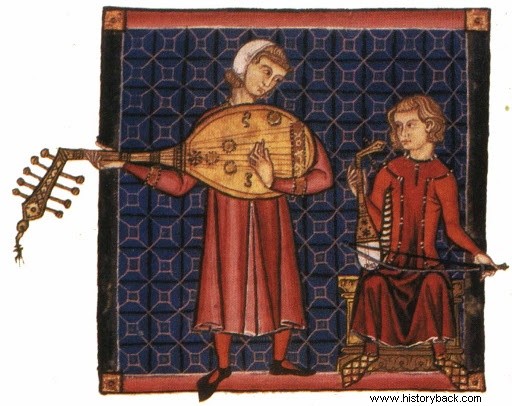
Middle Ages:two children learn to play
What was the elementary school in Florence like in Dante's time ?
What structure did it have and what were its main characteristics?
First of all, let's say that yes, even the Florentine children of the Middle Ages went to school, although the high-ranking, aristocratic and bourgeois families preferred to have a tutor at home.
Dante student
A document dated 1277 concerning the Alighieri family, it helps us to better understand the school system of the time.
We know that before 1300 there were four or five doctores in Florence (or magistri ) puerorum.
Among them is a certain Romanus, who seems to have been the first teacher of Dante.
Like all the kids of his time, the future author of the Divine Comedy he attended elementary school from the age of six or seven to about eleven.
It is here that the poet learned to read, write and do arithmetic.
Elementary School in Florence at the time of Dante:essential features. Timetables, teachers, calendar, books, notebooks and curiosities
But what else do we know about the elementary school in Florence at the time of Dante?
The school year it started around 29 September but we do not know how many hours the study morning was formed.
The locals used for this purpose were nothing more than a part of the homes of the masters themselves, who were sometimes assisted by a colleague.
If today schoolchildren go to class fully equipped with backpacks full of pens, erasers , pencils and books , the children of the Middle Ages needed much less to study.
They had only wooden tablets sprinkled with wax at their disposal on which they practiced writing letters and numbers; in practice, they were notebooks of the time.
We must emphasize that there was one aspect of the school at the time that, apparently, has remained unchanged over the centuries: teachers were paid little.
We don't know exactly how much, but to get an idea just say that they were exempt from paying taxes.
However, they consoled themselves (perhaps) with the title of ser, which they shared with notaries and doctors.
However, during the holidays, they received gifts, which often consisted of products of nature.
The education of girls
It goes without saying that little girls were separated from males and could have female teachers only.
Their elementary studies included domestic arts , essential to prepare future women able to look after the house and family in the best way.
Fortunately for them, the program also included the study of music and dance (Photo gives: cirfim.unipd.it).
